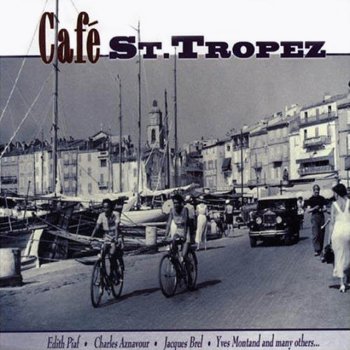Текст песни Les crayons - Bourvil
Elle
n'avait
pas
de
parents
Puisqu'elle
était
orpheline
Comme
elle
n'avait
pas
d'argent
Ce
n'était
pas
une
richissime
Elle
eut
c'pendant
des
parents
Mais
ils
ne
l'avaient
pas
reconnue
Si
bien
que
la
pauvre
enfant
On
la
surnomma
l'inconnue
Elle
vendait
des
cartes
postales
Puis
aussi
des
crayons
Car
sa
destinée
fatale
C'était
d'vendre
des
crayons
Elle
disait
aux
gens
d'la
rue
"Voulez-vous
des
crayons?"
Mais
reconnaissant
l'inconnue
Ils
disaient
toujours
"non"
C'est
ce
qu'est
triste
C'est
triste
quand
même
de
n'pas
reconnaître
son
enfant
Il
faut
pas
être
physionomiste
Il
m'semble
que
si
j'avais
un
enfant,
moi
je
le
reconnaîtrais
À
condition
qu'il
me
ressemble
naturellement
C'était
rue
d'Ménilmontant
Qu'elle
étalait
son
petit
panier
Pour
attirer
les
clients
Elle
remuait
un
peu
son
panier
Mais
un
jour,
un
vagabond
Qui
passait
auprès
d'son
panier
Lui
a
pris
tous
ses
crayons
Alors,
elle
s'est
mise
à
crier
"Voulez-vous
des
cartes
postales?
Je
n'ai
plus
de
crayons"
Mais
les
gens,
chose
banale
N'voulaient
plus
qu'des
crayons
Quand
elle
disait
dans
la
rue
Qu'elle
avait
des
crayons?
Ils
disaient
à
l'inconnue
"Tes
crayons
sont
pas
bons"
C'est
ce
qu'est
triste
C'est
triste
quand
même,
elle
avait
plus
d'crayons
Forcément,
elle
s'baladait
avec
son
panier
à
découvert,
n'est-ce
pas?
Alors
l'vagabond,
lui,
bon,
allez,
bon,
allez,
hop
Il
lui
a
pris
tous
ses
crayons,
comme
ça
elle
n'en
avait
plus
C'est
vrai
qu'elle
n'en
avait
pas
besoin
puisqu'elle
n'en
vendait
jamais
Mais
quand
même
Un
marchand
d'crayons
en
gros
Lui
dit
"viens
chez
moi,
mon
enfant
Je
t'en
ferai
voir
des
beaux
Je
n'te
demanderai
pas
d'argent"
Ce
fut
un
drôle
de
marché
Car
c'était
un
drôle
de
marchand
Et
elle
l'a
senti
passer
Car
elle
en
a
eu
un
enfant
C'est
triste
ça
quand
même
d'abuser
d'une
inconnue
comme
ça
C'est
vrai
qu'elle
a
été
faible
aussi
C'est
pas
parce
qu'il
disait
qu'il
avait
un...
Qu'il
était
marchand
de
crayon
en
gros,
que...
Enfin,
elle
avait
un
enfant,
voilà
elle
avait
bonne
mine
Si
seulement
elle
avait
eu
une
mine
de
crayon
Mais
non,
mais
c'est
ce
qui
la
minait
Alors
quand
elle
a
vu
ça,
elle
a
abandonné
son
enfant
Et
qu'est-ce
qu'elle
a
fait
plus
tard,
cette
enfant?
Elle
vendait
des
cartes
postales
Puis
aussi
des
crayons
Car
sa
destinée
fatale
C'était
d'vendre
des
crayons
Elle
disait
aux
gens
d'la
rue
"Voulez-vous
des
crayons?"
Mais
reconnaissant
l'inconnue
Ils
disaient
toujours
"non"
C'est
ce
qu'est
triste

1 Les crayons
2 Pour sur
3 Les Hirondelles
4 A bicyclette
5 La rumba du pinceau
6 La dondon dodue
7 La tactique du gendarme
8 Pêcheur Et Paysan
9 En revenant de la revue
10 Caroline, Caroline
11 Secoue tes miettes
12 Opérette "PHI-PHI" : C’est une gamine charmante"
13 Opérette "PHI-PHI" : "Blancheur – Rondeur
14 A joinville le pont
15 C'est la vie de bohème
16 T'epier
17 Le Voyage de noces
18 Elle Faisait Du Strip-tease
19 Ballade irlandaise
20 À Dada
21 Berceuse à Frédéric
22 Comme t’étais
23 Ma p'tit' chanson
24 Salade de fruits
25 Causerie anti-alcoolique
26 Interview
27 Mon frère d’Angleterre
28 La terre
29 C'était bien
30 Un Clair De Lune A Maubeuge
31 Le trou
32 La tendresse
33 Bonjour, monsieur le maître d’école
34 Nous vieillirons ensemble
35 Café ! Tabac ! (De l’opérette "Ouah ! Ouah !")
36 Pouet Pouet
37 Ça
38 Ah! C'que t'es bête
39 Vraiment ça tombe bien
40 On A Vecu Pour Ca
41 Hay di Ho
42 Ah, si on le faisait faire
43 Aux Quatre Saisons
44 Pour Se Parler D'amour
45 Il s'en est fallu de peu
46 Bientôt les vacances
47 Puisqu'on s'aime
48 C'est pas le Pérou
49 Bien, si bien
Внимание! Не стесняйтесь оставлять отзывы.
